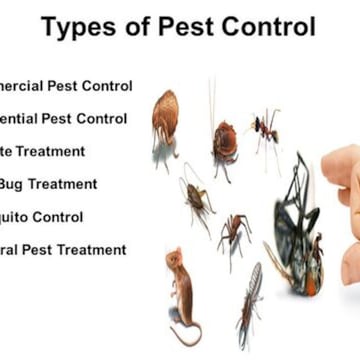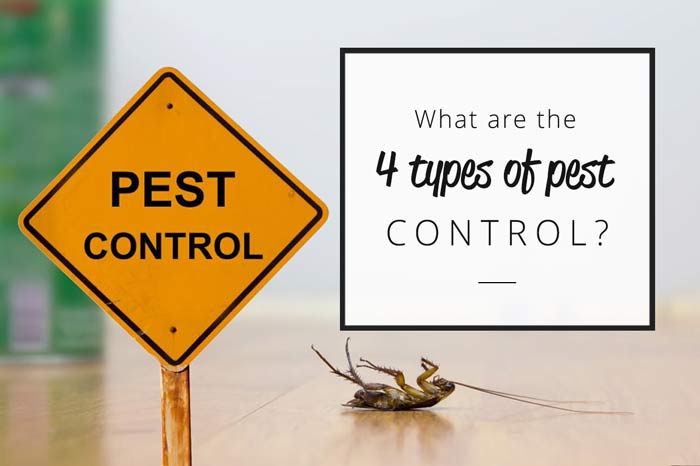The Ultimate Guide To Pest Control
The Ultimate Guide To Pest Control
Blog Article
The smart Trick of Pest Control That Nobody is Discussing
Table of ContentsFacts About Pest Control UncoveredHow Pest Control can Save You Time, Stress, and Money.Pest Control Things To Know Before You Get ThisPest Control - Truths9 Simple Techniques For Pest ControlNot known Incorrect Statements About Pest Control
Our findings reveal that the initial evaluation will certainly set you back anywhere from $160-$300 on standard. This typically sets you back anywhere in between $400-$1000 for the whole year's coverage, with month-to-month or bi-monthly check outs already rolled right into the last cost.Depending on the issue, a work that needs an one-time go to generally sets you back $300 to $550. These are the most convenient prices to outline in your insect control catalogs. Make certain to describe to your consumer the process and the time it will take to assess the situation. During this very first browse through, you might find that the work requires numerous added gos to, whereupon you can consider it a first check out.
Bugs that typically needs continuous brows through consist of: Roaches. Our searchings for show that an initial see is concerning $180 and is the very first of a continuous agreement. Throughout this initial go to, you must: Analyze the issue.
12-month agreement. Generally, the frequency of regular brows through is: Every month: $40 45. Every two months (semi-monthly): $50 60. Every 3 months (quarterly): $100 300. Pest control is a chemically-intensive organization. Chemicals are the vital materials that pest control operators use to complete a task. Usual chemicals consist of: Boric acid.
Our Pest Control Diaries
Crucial products and supplies you'll use consist of: Respirator. Sprayer. Gloves. Duster. Foamer Baiting devices. UV light. Various other security devices. It is necessary to have every one of the right tools before starting a job. Your tools ought to be included as component of your expenses expenses. If you have workers, then labor prices are mosting likely to be the largest expenses for your organization.
Limitations of Chemical Monitoring Be able to assess bug troubles, determine if monitoring is necessary, and make appropriate referrals utilizing IPM techniques. Know with different techniques of insect monitoring - their advantages and restrictions. Recognize the value of helpful bugs. It is not possibleor also desirableto rid gardens of all pests.
This chapter reviews (IPM), a technique that makes use of knowledge concerning pests and their, methods, nonchemical approaches, and chemicals to handle insect troubles. Added info regarding IPM for details plants is included in chapters that focus on those plants. Pests in a yard or landscape may consist of bugs and mites, weeds,, animals, and birds.
Getting The Pest Control To Work
Many individuals rush to draw, hoe, or spray every weed they see. Bugs and weeds, nevertheless, contribute in the. After planting a garden or establishing a yard, the all-natural process of plant succession starts to restore and nonnative plants. A weed expanding in a grass stands for the initial stage in a sequence of occasions that, if allowed to proceed, can ultimately lead to a woodland.
What we call "pests" become part of a natural system at job. An environment has no bugs. Only humans consider particular types bugs when they occur where they are not wanted. We will certainly be much more successful in taking care of unwanted species when we realize that these microorganisms comply with foreseeable patterns that we can make use of to our benefit.
Pests susceptible to a pesticide were promptly eliminated, leaving immune ones to breed and multiply. It became clear that pesticides alone would not address all insect troubles. Instead, overuse of chemicals created the growth of immune pests. Scientists started to develop a brand-new strategy to pest control. This new method was called integrated parasite administration (IPM).
An IPM strategy enables some degree of pests in the atmosphere. Parasites are a lot less most likely to make it through a program that makes use of various techniques of reducing their populaces. Integrated bug monitoring was first suggested by entomologists due to the fact that bugs were the initial team of insects to confirm challenging to handle with chemicals alone.
The smart Trick of Pest Control That Nobody is Talking About

Administration as opposed to removal of bugs is the goal. An IPM plan starts with a mindful examination of each pest problem. Just then can one choose regarding the ideal strategies necessary to subdue parasite activities. The life cycle of the parasite, feasible damage, natural adversaries, and impacts of weather condition, among other factors, are thought about before a control strategy is applied.
Clover growing in a yard may be watched as an undesirable weed, however as a bean it is manufacturing nitrogen for the soil and the flowers are offering nectar to honey and other. Tolerance for some weeds may become part of an IPM plan. might be eating the leaves of a plant, however when they are identified as the larvae of Eastern tiger swallowtail butterflies, their damage might be endured so we can enjoy the beautiful butterfly.
Matt Bertone Avoidance is the very first tool in parasite monitoring because it is the most reliable, least pricey, most environmentally friendly option. Picking a healthy and balanced plant that prospers in the desired place with the readily available light, planting it carefully, and making sure that it has sufficient water and nutrients prevents stress and minimizes pest troubles.
Not known Facts About Pest Control
The 2nd essential tool in insect administration is early treatment. Existing and observant in the garden ensures early discovery. Reacting to issues promptly, before they have time to multiply, needs a much less significant treatment. The third most vital tool is recordkeeping; tracking what happens in the garden makes it possible for a gardener to acknowledge patterns and browse around this site make educated decisions.
Lots of risk-free, useful, nonchemical techniques of plant defense and bug administration might minimize or eliminate the need to spray. Various other approaches are most advantageous when made use of with chemicals. To execute management methods correctly and to decrease losses, garden enthusiasts must be conscious of the kinds of pests that strike plants and recognize pest biology.
Parasite administration methods come this under four teams: social, mechanical, biological, and chemical. Keeping plants healthy and stopping plant stress and anxiety assists plants to much better stand up to and fix the damage triggered by an insect or mite pest. Some evidence suggests that healthy plants stand up to invasion by bugs better than plants with reduced vitality.
Performing a soil test and using only the advised amount of fertilizer and lime optimizes the advantage to the plant while decreasing issues connected to extreme use of plant food. Covering the soil with several inches of mulch protects the plant in several methods: decreasing dirt water loss to dissipation, minimizing weed competition, supplying nutrients, and producing an ideal environment for earthworms and microbes that maintain the dirt loosened for origins and break down natural product to release nutrients.
Things about Pest Control

If tilling is regarded essential, think about doing it in the fall when the life cycles of lots of parasites brings them near the surface area. At the surface area, bugs end up being revealed to the weather along with birds and various other natural enemies. Fall tilling can also damage insects in crop residues. Use healthsome and insect-free qualified seeds and plants if offered.
Report this page